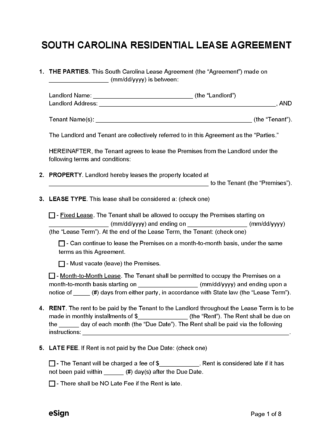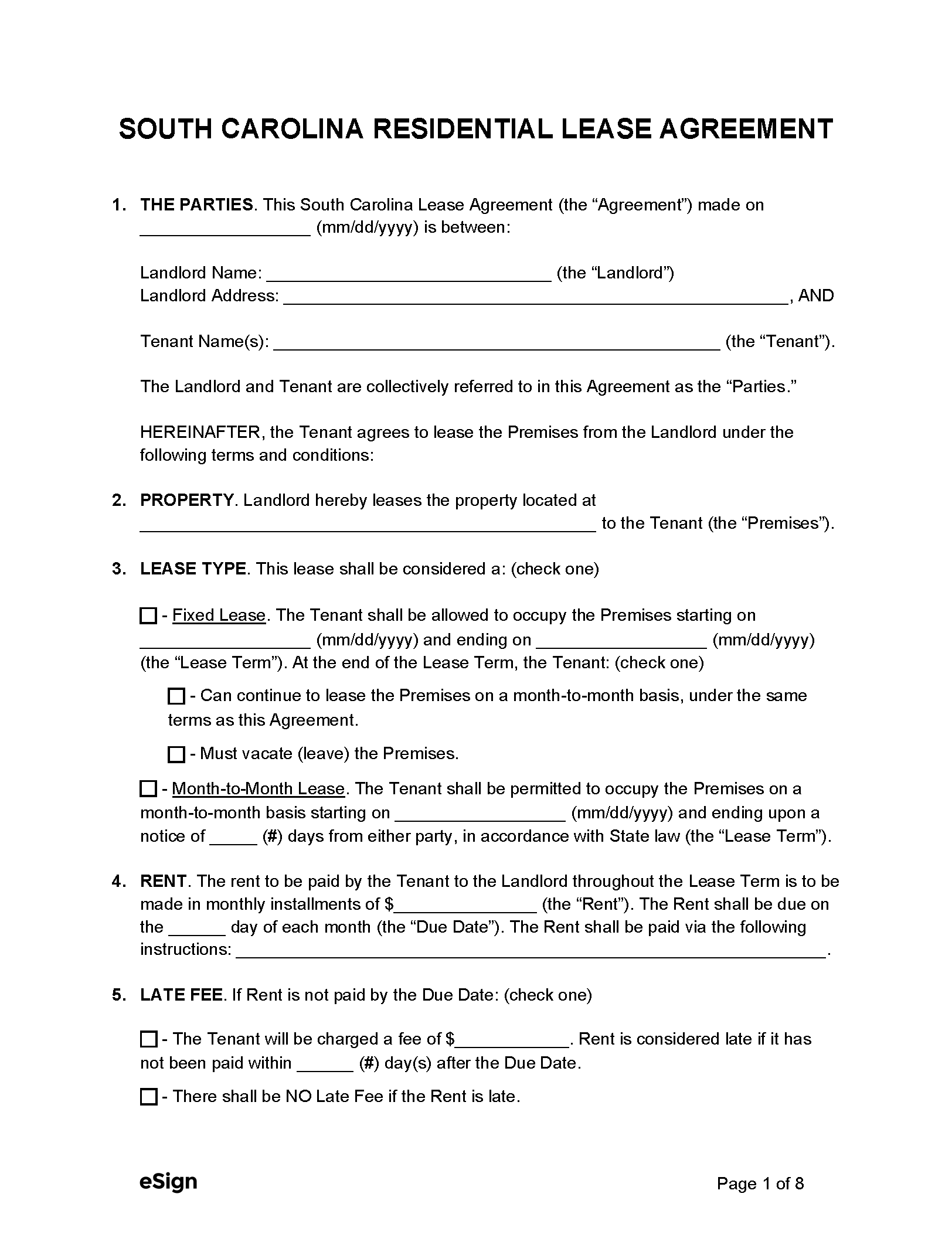
A South Carolina lease agreement is a document used by landlords to rent out commercial or residential property . It is the instrument that establishes the rights and responsibilities of tenant and owner. The signatures of both parties render it legally binding.
A South Carolina lease agreement is a document used by landlords to rent out commercial or residential property . It is the instrument that establishes the rights and responsibilities of tenant and owner. The signatures of both parties render it legally binding.
PDF Download
A South Carolina lease agreement is a document used by landlords to rent out commercial or residential property . It is the instrument that establishes the rights and responsibilities of tenant and owner. The signatures of both parties render it legally binding.
4.4 | 72 Ratings Downloads: 8,112
Rental Application – A document landlords use to check a lease applicant’s rental history, employment information, and criminal background.
Maximum Amount ($) – No state law limits the amount of security deposit the landlord can request from the tenant.
Collecting Interest – No law obligates the landlord to collect interest on the security deposit for the tenant.
Returning to Tenant – Security deposits must be returned to the tenant within 30 days. [4]
Itemized list Required? – Yes, if the landlord deducts from the security deposit, they must provide the tenant with an itemized list within 30 days of the end of the lease. [5]
Separate Bank Account? – No statute obligates the landlord to maintain a security deposit in a seperate bank account.
General Access – 24 hours’ notice is required before entering the premises of a dwelling. The time of entry scheduled with the tenant must be a reasonable hour of the day. [6]
Immediate Access – A landlord may enter the premises at any time without consent in cases of emergency . [7]
Grace Period – There is no grace period that must be given to tenants before the landlord can charge late fees. [8]
Maximum Late Fee ($) – No state law limits the late fee amount that the landlord may impose on a tenant.
Bad Check (NSF) Fee – A service charge of $30 is the most that can be charged for a bad check. [9]
Withholding Rent – If the landlord fails to provide essential services, the tenant may notify the landlord, remedy the violation, and deduct the costs from their rent. [10]
Non-Payment of Rent – The day after the tenant fails to pay the rent, the landlord may send them a 5-day notice to quit. [11]
Non-Compliance – If the tenant violates the rental agreement, they may be sent a 14-day notice to quit stating that they have 14 days to remedy the problem or they must vacate the property. [12]
Lockouts – The landlord may not change the locks or attempt to remove the tenant by interrupting services without a court order. [13]
Leaving Before the End Date – If the tenant abandons the property, they must pay the lost rent for the time the property is empty. [14] The landlord must make a reasonable effort to re-rent the dwelling. [15]
Month-to-Month Tenancy – To terminate a periodic monthly lease , the landlord or tenant must give a 30-day notice. [16]
Unclaimed Property – The landlord may dispose of any personal property left by a tenant if the value of that property is $500 or less. [17]